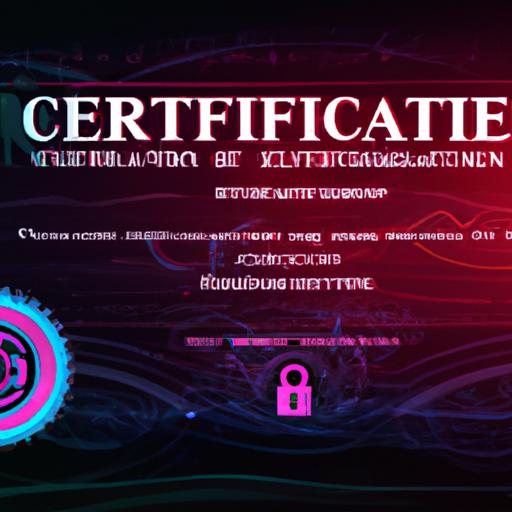Cyber Security Courses for Beginners: A Comprehensive Guide
Introduction
In a world where our lives are increasingly intertwined with technology, the need for robust cyber security measures has never been more critical. But what exactly is cyber security? At its core, cyber security involves the protection of electronic data from unauthorized access or cyber attacks. It encompasses a wide range of practices and technologies aimed at safeguarding our digital assets, whether personal information, financial data, or intellectual property.
The importance of cyber security cannot be overstated in today’s digital landscape. With cyber threats on the rise, individuals and businesses alike are vulnerable to malicious actors seeking to exploit vulnerabilities in our interconnected world. This is where cyber security courses for beginners come into play, offering a gateway to understanding the fundamentals of cyber security and equipping you with the knowledge and skills needed to defend against cyber threats. Whether you’re looking to enhance your career prospects or simply safeguard your online presence, embarking on a cyber security course is a proactive step towards securing your digital future.
What to Look for in Cyber Security Courses for Beginners
Curriculum and Topics Covered
When considering cyber security courses for beginners, one of the key factors to evaluate is the curriculum and topics covered. A comprehensive course should provide a solid foundation in essential cyber security concepts, such as network security, cryptography, and threat detection. Look for courses that offer a well-rounded curriculum that addresses both theoretical knowledge and practical skills to ensure a holistic understanding of cyber security principles.
Hands-On Experience and Practical Exercises
Hands-on experience is crucial in the field of cyber security, as it allows beginners to apply theoretical concepts in real-world scenarios. Look for courses that incorporate practical exercises, simulations, and case studies to provide opportunities for hands-on learning. Practical experience not only reinforces learning but also helps beginners develop critical thinking skills and problem-solving abilities essential in the field of cyber security.
Industry-Recognized Certifications
Industry-recognized certifications can add credibility to your cyber security skills and enhance your career prospects. When choosing a cyber security course, consider whether the course offers the opportunity to earn certifications from reputable organizations such as CompTIA, EC-Council, or (ISC)². These certifications can validate your expertise in specific areas of cyber security and demonstrate your commitment to professional development.
Instructor Qualifications and Experience
The expertise and experience of instructors can significantly impact the quality of a cyber security course. Look for courses taught by instructors with relevant industry experience, certifications, and a proven track record in the field of cyber security. Instructors who bring real-world insights and practical knowledge to the classroom can enrich your learning experience and provide valuable mentorship as you navigate the complexities of cyber security.
Top Cyber Security Courses for Beginners
Introduction to Cyber Security
When diving into the world of cyber security, starting with an introductory course can lay a solid foundation. These courses typically cover the basic concepts of cyber security, including common threats, security protocols, and best practices for safeguarding digital assets.
Cyber Security Fundamentals
For beginners looking to deepen their understanding of cyber security, courses focusing on fundamentals are a valuable resource. These courses delve into key topics such as encryption, risk assessment, and incident response, equipping learners with essential knowledge to navigate the cyber security landscape effectively.
Network Security Basics
Understanding network security is crucial in today’s interconnected world. Courses that focus on network security basics provide insight into securing networks, detecting vulnerabilities, and implementing effective security measures to protect data in transit.
Cyber Security Essentials
As the name suggests, cyber security essentials courses cover foundational principles and practices essential for safeguarding digital information. From data protection to threat detection, these courses offer a comprehensive overview of key cyber security concepts and strategies.
Ethical Hacking for Beginners
Ethical hacking courses provide a unique perspective on cyber security by exploring the tactics and techniques used by hackers to identify vulnerabilities. By learning ethical hacking skills, beginners can gain valuable insights into how to strengthen security defenses and protect against cyber threats.
How to Choose the Best Cyber Security Course for Beginners
Researching Different Courses and Providers
When delving into the realm of cyber security courses, it’s essential to conduct thorough research on the various courses and providers available. Look into the curriculum, course structure, and the expertise of instructors to ensure that the course aligns with your learning goals and aspirations. Consider factors such as the depth of coverage on key cyber security topics and the practical applications offered within the course.
Reading Reviews and Testimonials
Before committing to a cyber security course, take the time to read reviews and testimonials from past students. Feedback from individuals who have completed the course can provide valuable insights into the quality of instruction, course materials, and overall learning experience. Look for reviews that highlight the strengths and weaknesses of the course to make an informed decision.
Considering Your Own Learning Style and Preferences
Every individual has a unique learning style and preferences when it comes to acquiring new knowledge. Consider factors such as your preferred learning environment, whether you thrive in a structured classroom setting or prefer self-paced online learning. Additionally, think about the level of interaction you desire with instructors and peers, as this can impact your learning experience and overall satisfaction with the course.
Setting Goals and Objectives for Taking the Course
To make the most of your cyber security course, it’s essential to set clear goals and objectives for what you hope to achieve. Whether you aim to enhance your understanding of cyber security fundamentals, acquire industry-recognized certifications, or pivot towards a career in the field, having well-defined goals can guide your course selection process and keep you motivated throughout your learning journey.
Conclusion
In conclusion, the world of cyber security is ever-evolving, and the need for skilled professionals in this field continues to grow. By taking the initiative to enroll in cyber security courses for beginners, you are not only investing in your own future but also contributing to a safer digital environment for all. Remember, cyber security is not just a career path; it’s a mindset that empowers you to protect personal and sensitive information in an increasingly connected world.
As you embark on your journey into the realm of cyber security, keep in mind that knowledge is power. Stay curious, stay informed, and stay vigilant in the face of cyber threats. With the right tools and training at your disposal, you can become a valuable asset in safeguarding our digital infrastructure and shaping a more secure online landscape for generations to come. Embrace the challenge, embrace the opportunities, and let your passion for cyber security drive you towards a future filled with endless possibilities.




